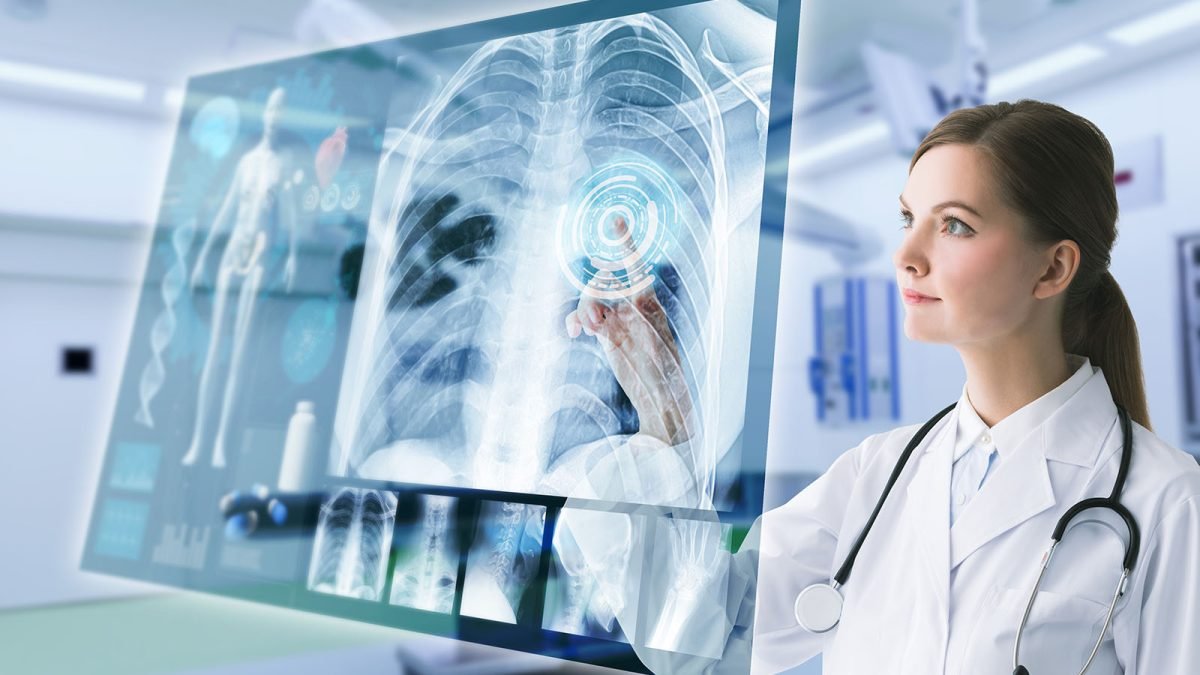The Digital Transformation of Healthcare: AI’s Role in Saving Lives
Introduction
Artificial Intelligence (AI) is revolutionizing every aspect of modern life conveying a sense of science fiction into reality. While many sectors like finance, construction, and retail have corporations leveraging artificial intelligence, healthcare stands out. The digital transformation powered by AI is not just about refining processes and efficiency; it’s about saving lives.
The Emergence of Digital Transformation in Healthcare
The healthcare industry has been notorious for its slow adoption of digital technology. However, with the pandemic, acceleration in digital adoption became the norm. Hospitals and clinics began leveraging AI for administrative and operational processes, medical imaging, diagnosis, treatment, monitoring, and drug discovery.
Read Also: Revolutionizing Agriculture: How AI is Shaping the Future of Farming
AI Re-defining Healthcare
AI, with its predictive capabilities, can detect health issues and commence remedial measures faster than traditional means. To ensure early detection, AI algorithms analyze patterns in patients’ medical histories or laboratory results. AI and Machine Learning (ML) are becoming indispensable tools for radiologists and pathologists, aiding in accurate diagnoses. Personal AI assistants are aiding individuals with medical adherence, providing reminders for medication, and information about diet and exercise.
AI’s Role in Saving Lives
AI’s role in saving lives has become unequivocally clear, particularly in early detection. AI can accurately detect potential health risks sooner than conventional healthcare. For instance, algorithms can analyze eye scans and predict diabetic retinopathy with remarkable accuracy.
AI technology is also critically transforming cancer care. With advanced predictive analysis, AI tools can meticulously and quickly analyze radiographic images, detecting malignant tumors in their earliest stages.
Challenges of AI in Healthcare
While the potential of AI in healthcare is immensely promising, challenges persist. The lack of standardized data, privacy concerns, and the need for significant infrastructure are some issues. Additionally, even though AI can supplement decision-making, it cannot replace the need for human touch in healthcare.
The Future of AI in Healthcare
The future of AI in healthcare looks dynamic, with its increasing influence on health monitoring, as well as in research and drug discovery. With further advancements, AI can play a significant role in personalized medicine, tailoring treatments to individual genetic makeup.
In conclusion, the digital transformation of healthcare, propelled by AI, is a promising landscape. Leveraged sufficiently and responsibly, AI can redefine healthcare, helping save countless lives along the way.
FAQs
What roles does AI play in healthcare?
AI in healthcare assists in diagnosis, treatment, monitoring, drug discovery, and hospital administration.
How does AI help in early detection?
AI analyzes patient medical history patterns or laboratory results, allowing for predictive diagnostics and earlier intervention.
Can AI replace medical professionals?
While AI is powerful, it won’t replace healthcare professionals. It can supplement decision-making, but the necessity for “human touch” remains important.
What are the challenges of AI in healthcare?
Challenges include a lack of standardized data, privacy issues, and significant infrastructure needs.
What does the future of AI in healthcare look like?
The future sees more influence on health monitoring, as well as research and drug discovery. AI holds potential in personalized medicine.





